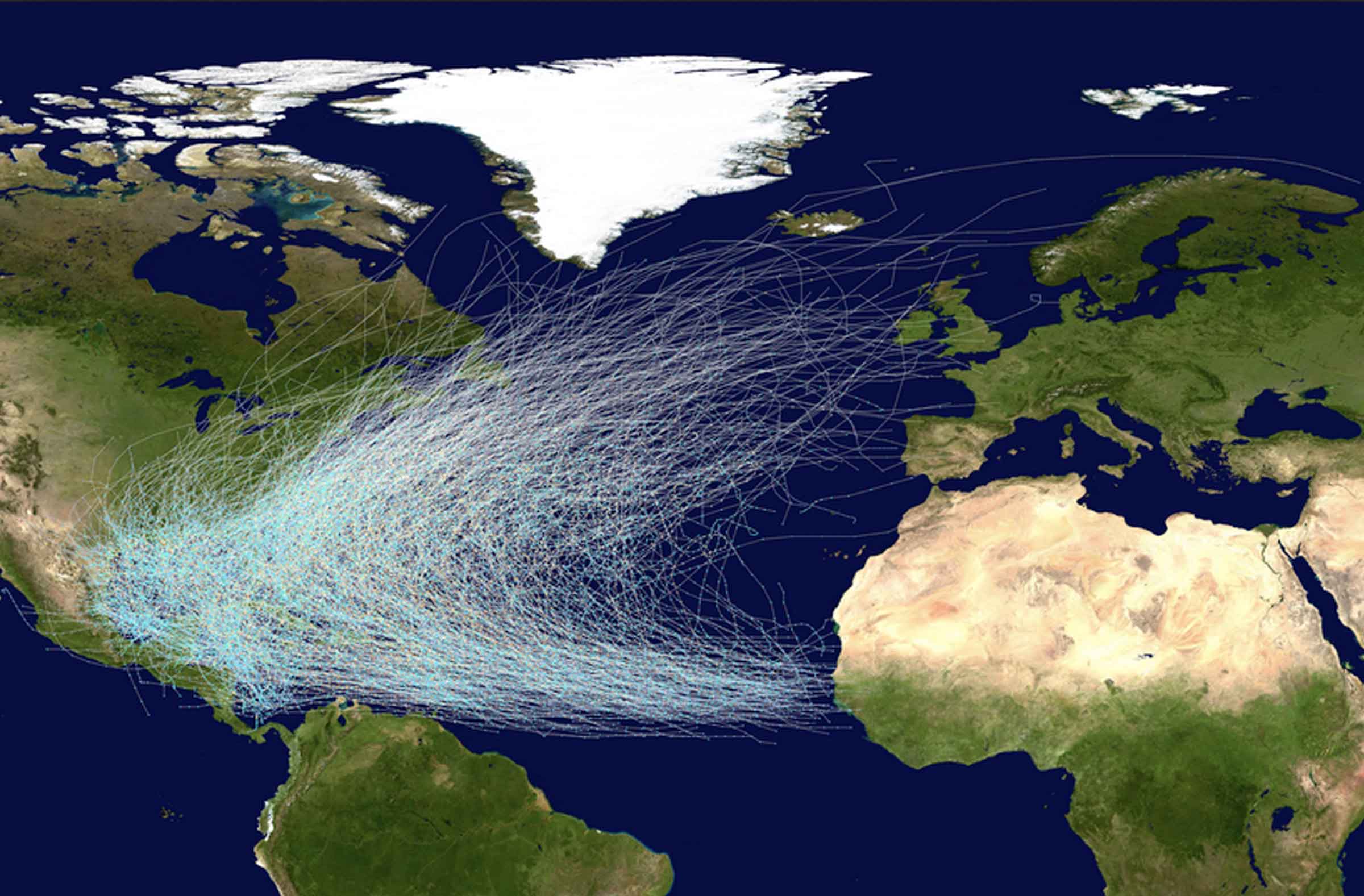When hurricane season is upon us, you may find yourself wondering — what is a hurricane? What could cause such a powerful storm? And how do we study something so dangerous?
Read on to learn the answers to the most common questions about hurricanes.
- What is a hurricane? How is it different from a tropical storm?
Hurricanes (sometimes called “tropical cyclones”) are huge, swirling storms that form over the ocean. When an ocean-born storm has wind speeds over 38 mph, the World Metereological Organization gives it a name and designates it a “tropical storm”. When the storm grows so powerful that it sustains wind speeds over 74 mph, it becomes classified as a hurricane. - How do we measure hurricanes? What does “Category 5” mean?
We measure hurricanes according to a scale known as the Saffir-Simpson Hurricane Scale. This scale gives hurricanes a classification based on the average wind speed of the hurricane:- Category 1 hurricanes have a wind speed of 74-95 mph.
- Category 2 hurricanes have a wind speed of 96-110 mph.
- Category 3 hurricanes have a wind speed of 111-129 mph.
- Category 4 hurricanes have a wind speed of 130-156 mph.
- Category 5 hurricanes have a wind speed of over 157 mph!
- How and when does a hurricane form?
Although we’re not 100% sure how hurricanes form, we do have a pretty good idea. We know that hurricanes form in the summer and fall because they require warm waters to get started. In fact, these storms must form over ocean water that is 79 degrees Fahrenheit or warmer. The warm water gives rise to thunderstorms as hot, moist air rises above it. When these surface winds meet the winds much higher up in the sky, they form a pattern of clouds known as a tropical depression. In order for those winds to meet, however, the surface winds have to not change very much as they rise. Unstable wind patterns will break up before a storm can form.Once the tropical depression is formed, it’s a matter of whether or not the winds pick up speed to become a tropical storm and then a hurricane. - How deadly are hurricanes?
Contrary to what you might think, how deadly a hurricane is doesn’t depend on what category hurricane it is. Sometimes a Category 1 hurricane can be more deadly than a Category 3. It depends on how wide the storm is, how many storm surges it causes, and how much rainfall it gives off. Hurricanes cause most of their damage and death by means of flooding, high winds, high tides, and rip currents. If a lower-category hurricane is very wide, it might bring dangerous flooding to a huge swath of the country it hits, causing much more death than a smaller, higher-category storm.The deadliest hurricane on record, the Galveston Hurricane of 1900, was a category 4 hurricane that caused 8,000 deaths. By contrast, Katrina, the third-deadliest hurricane on record, was a category 3 hurricane that caused 1200 deaths. - How do we study hurricanes?
Hurricanes can be watched from satellites in space, or we can fly computer-controlled planes into the storm to track wind speed, air pressure, temperature, and humidity. - Are hurricanes getting worse over time?
Many scientists believe the answer is yes. Two of the worst hurricanes on record, Hurricane Katrina in 2005, and Hurricane Sandy in 2012, were only 7 years apart. Since hurricanes require hot water to form, and average global temperatures are on the rise, it may be easier for deadly storms to develop. If you’re interested, you can read a summary of the current research on this topic here.
Now that you have the facts, you can feel confident when storms start to hit again next year. In the meantime, for the rest of your weather and preparedness needs, come to the Generator to Go blog.

